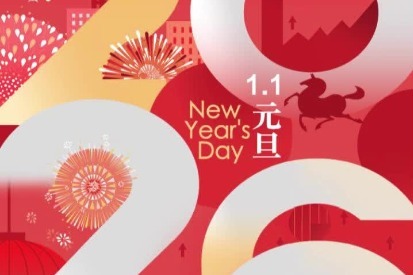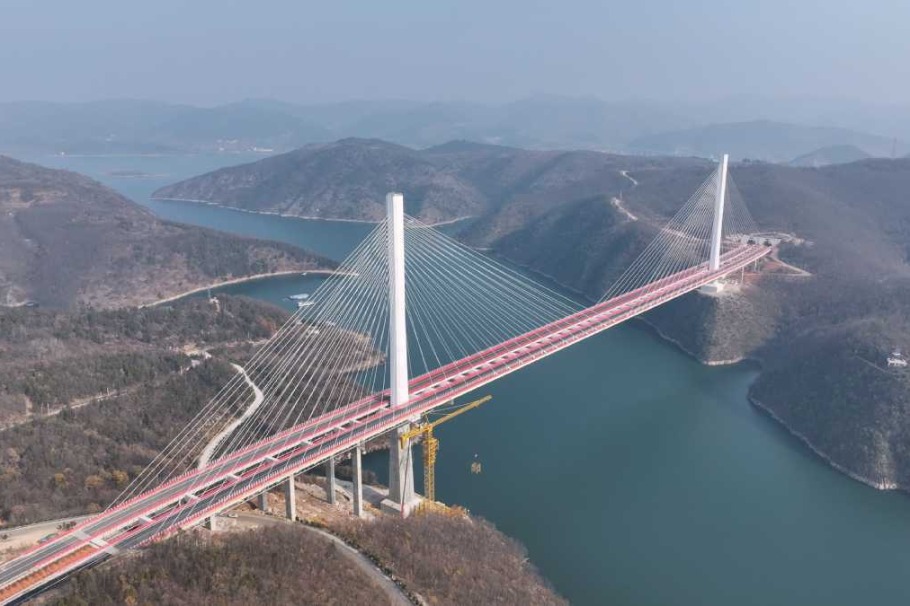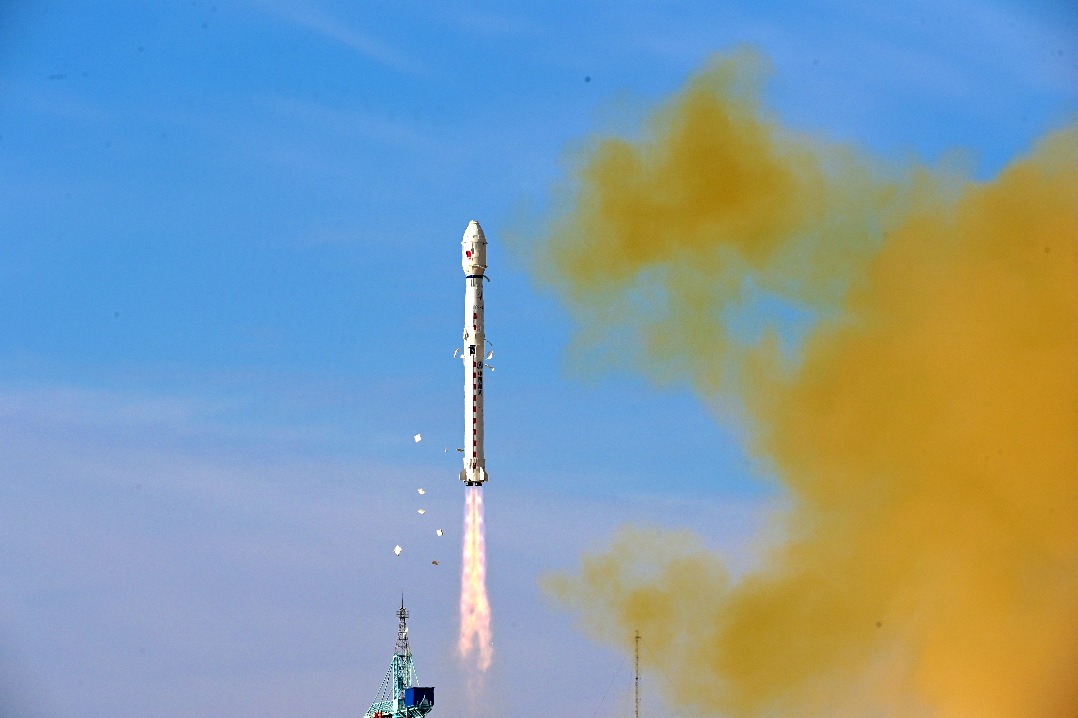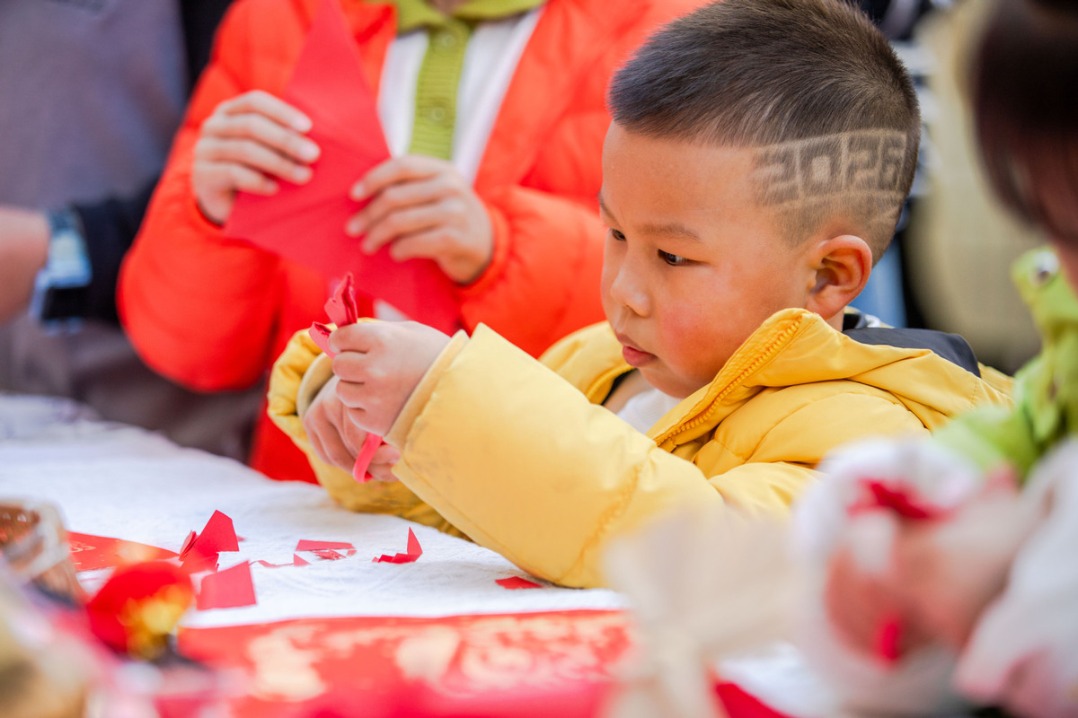Legislation promotes tea sector in Huangshan

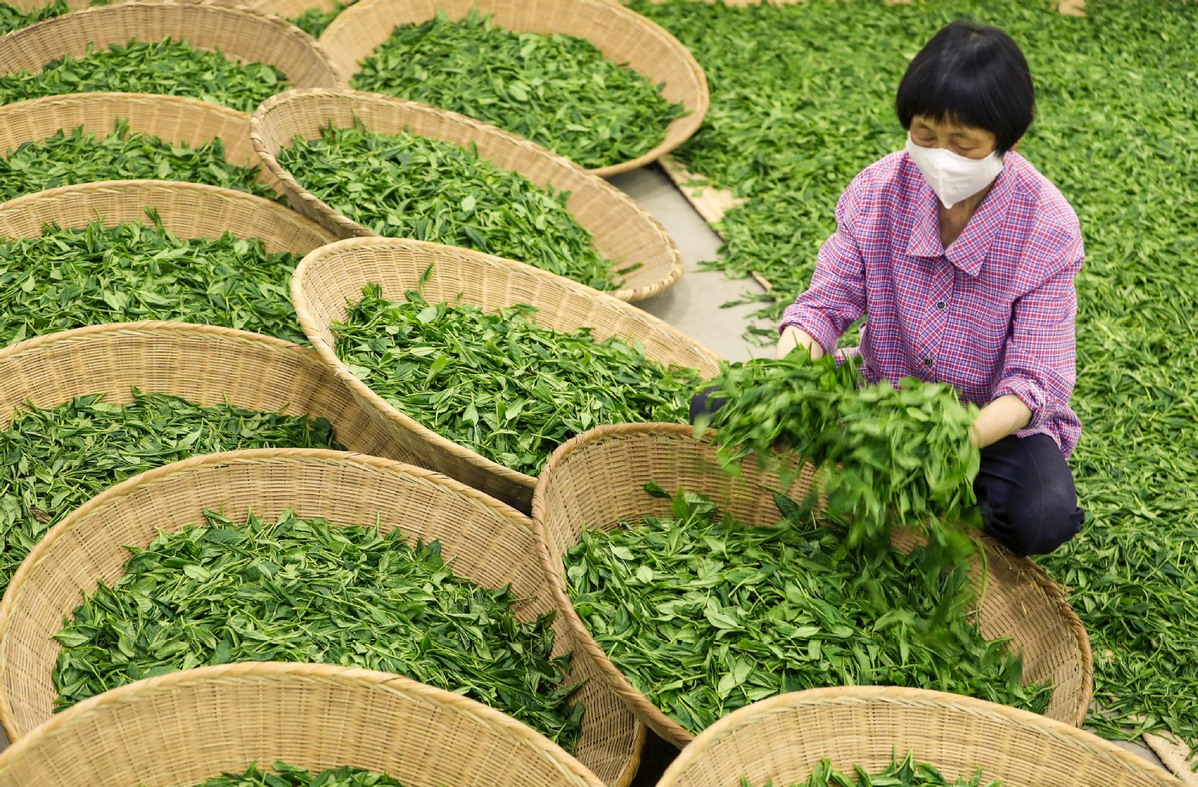
Liu Xizhu from Huangshan, Anhui province has been busy recently picking tea leaves in his tea garden that winds through the city's mountainous Yixian county.
First time visitors may wonder at the thousands of very noticeable yellow plates that sit among the tea plants that cover the mountains.
"They are glue-trap plates that lure harmful insects away from the tea plants," said Liu. Every 1,000 square meters has about 60 such plates, provided by the local government for free.
"Using the plates to get rid of the insects is better than using pesticides, and means the tea can fetch a better price on the market," said Liu, who started to replace using pesticides with the plates last year.
He is just one of the beneficiaries who have enjoyed the new-found efficiency from the targeted regulations made by local lawmakers.
President Xi Jinping required the country's legislators to enrich the approach to legislative work, continuing to handle both substantial legislation and shorter, more efficient, and high-impact legislation, thereby ensuring that the legislation becomes more targeted, applicable and practical.
Huangshan has been carrying out these practices and serving its people in this way for years, said an official from the city government.
Huangshan is a major tea production base, and its most famous varieties include green teas like Huangshan Maofeng. Tea gardens cover more than 52,300 hectares and produced 40,000 metric tons of dried tea leaves in 2020, according to the city government.
Although the use of chemical pesticides and herbicides in the agriculture sector had been limited in recent years, the situation had not been fundamentally changed until the implementation of a specific regulation in 2019.
In 2016, the city government released a catalogue of recommended pesticides and herbicides to limit harmful use, though there was no legal base to forbid the use of chemicals not on the list, according to experts.
Early in 2018, the standing committee of Huangshan People's Congress organized for legislators and experts to survey the rural area in preparation for targeted legislation, according to Bao Zhouming, an agriculture official of the city.
By the end of the year, the Huangshan Pesticide and Herbicide Security Administration Regulation had been passed by the standing committee, with enforcement beginning on July 1, 2019.
The regulation includes dozens of specific articles. For example, it requires pesticide and herbicide sellers to take back and recycle the packing of chemicals used by farmers. Those who fail to do so could be fined and even banned from operating their business.
The regulation encourages the use of biological and physical prevention measures for agricultural pests and diseases, saying that the local government should subsidize the application of such eco-friendly products.
In February, the city held a conference to promote ecologically friendly protection measures in tea gardens.
The conference reached a consensus that the city's tea production sector had achieved almost zero use of chemical pesticides and herbicides, while green measures to protect against insect and weed damage had been applied to all the tea gardens across the city.
"Since the implementation of the regulation, local farmers have become more aware of chemical pesticides and herbicides and are more willing to adopt the glue trap plates," said Xu Guanghui, an agriculture expert from Yixian county.
Statistics show the city distributed more than 28 million such plates in 2021.
Hu Mengjia, the official responsible for social surveys within the standing committee of the Huangshan People's Congress, said the committee always sticks to a solution-oriented approach for legislation work.
"Our work focuses especially on the terrific ecological gifts and splendid historical and cultural heritage of Huangshan," said Hu, who added that the starting point is always meeting people's needs and wishes.
In recent years, the standing committee has implemented about a dozen such shorter, more efficient, and high-impact regional regulations, according to the committee.

















